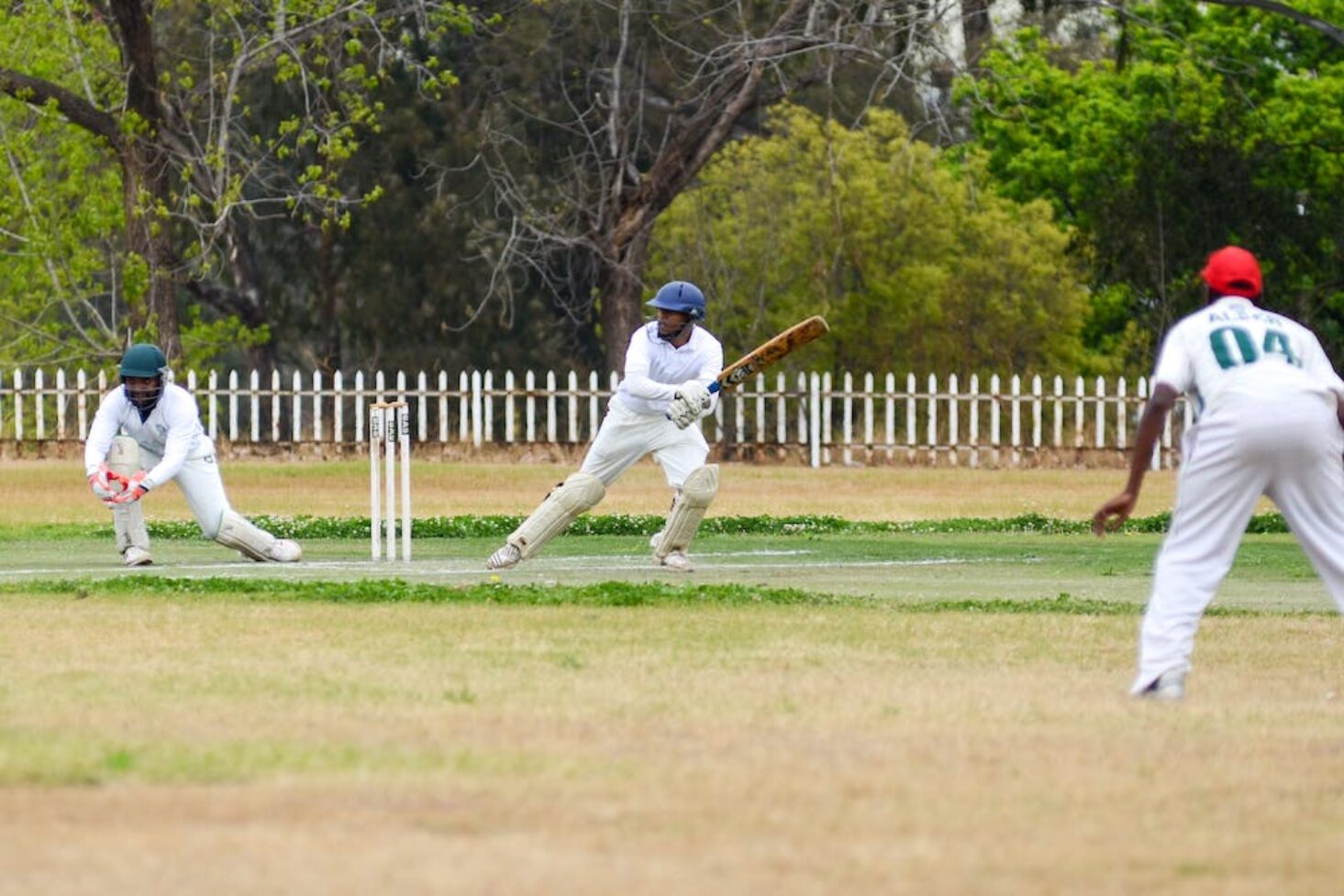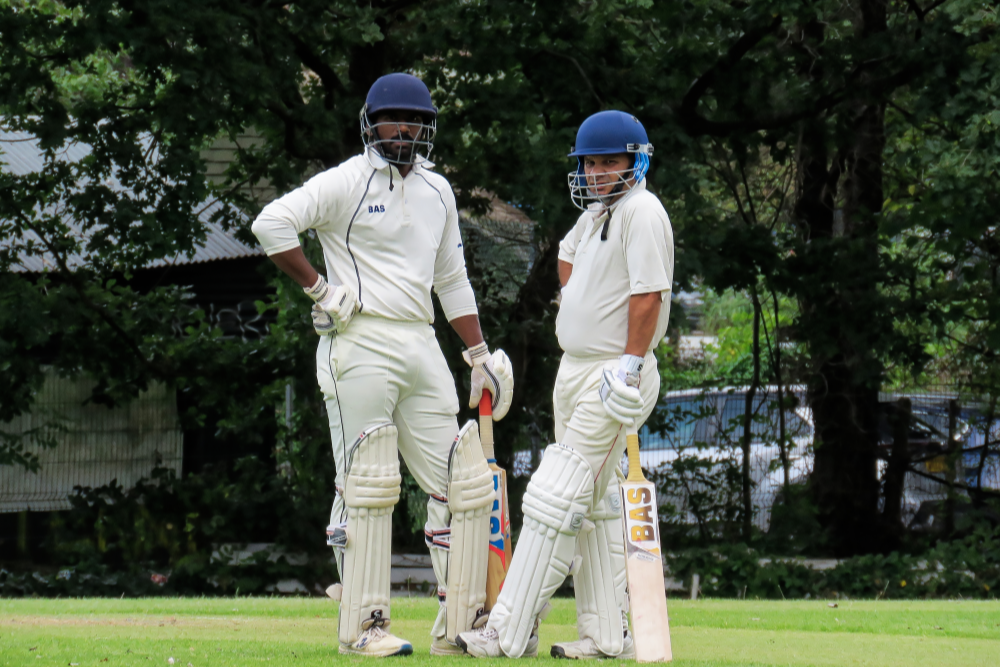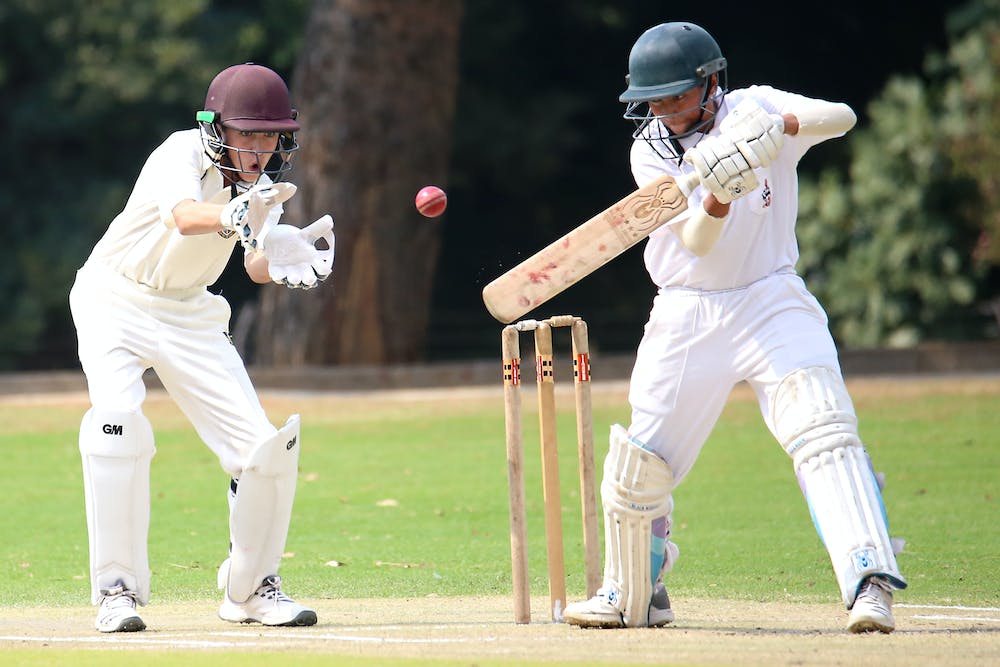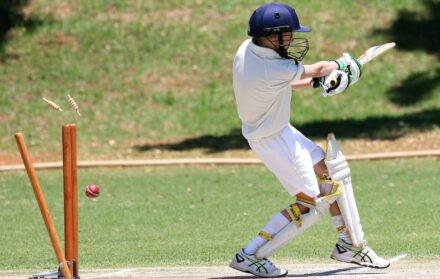
Parental Involvement in Kids Cricket
Embarking on the journey of parental involvement in kids cricket unveils a realm of opportunities and shared experiences that extend far beyond the cricket pitch. As children enthusiastically embrace the world of sports, particularly cricket, the impact of parental support becomes increasingly pivotal.
Cricket, a sport renowned for its rich tradition and strategic gameplay, captivates young minds with its unique blend of skill and camaraderie.
Parents play a vital role in fostering a love for cricket in their children, acting as mentors, motivators, and cheerleaders throughout their sporting endeavors.
The benefits of introducing children to cricket early on are manifold, encompassing physical fitness, mental acuity, and valuable life skills. The benefits of playing cricket for children become apparent as youngsters develop not only as athletes but also as individuals with enhanced teamwork, discipline, and resilience.
As kids delve into the world of cricket, the thrill of competition often beckons. Understanding the landscape of cricket tournaments and leagues designed for children opens avenues for friendly rivalries and skill development. These events not only provide a platform for showcasing talent but also create a sense of community and sportsmanship among young players and their families.
Exploring the cricket venues and stadiums tailored for kids adds another layer to the overall experience. These venues, designed with the young cricket enthusiast in mind, amplify the joy of playing the sport. The sense of being part of something larger than oneself, set against the backdrop of these specialized environments, instills a profound sense of pride and connection.
For parents unfamiliar with the intricacies of cricket, an introduction to cricket for kids becomes a valuable resource. This serves as a guide to the basics, ensuring that parents can actively engage with their children, share in their excitement, and appreciate the nuances of the game.
Cricket, like any sport, comes with its set of safety considerations. Navigating these concerns is crucial, and parents can find reassurance in adhering to established safety guidelines for kids playing cricket. A commitment to safety not only fosters a secure environment for children but also underscores the importance of responsible and informed parental involvement in the cricketing journey.
In this pursuit, initiatives like Sixes Social Cricket contribute significantly to ensuring a safe and enjoyable cricketing experience for kids. As an advocate for cricketing excellence and youth development, Sixes Social Cricket provides valuable insights into safety protocols, offering parents a comprehensive guide to create a protective cocoon for their budding cricketers.
By aligning with such programs, parents can enhance their understanding of safety measures, creating a holistic approach that prioritizes the well-being of young players.
As we delve into the world of parental participation in kids’ cricket, these interconnected facets weave a tapestry of support, guidance, and shared joy, creating a foundation for a lifetime of love for the sport.
Attending Matches and Practices
Attending matches and practices is vital for parental involvement in kids’ cricket. It is crucial for parents to be present and supportive during these events as it shows their investment in their child’s cricket development. Here are some considerations to keep in mind when attending matches and practices:
Be present: Make an effort to attend as many matches and practices as possible. By doing so, you demonstrate your commitment to your child’s cricket journey, which will boost their morale and motivation.
Be supportive: Show your support by cheering for your child and their team during matches. Regardless of the outcome, offer encouraging words and praise their efforts. This will not only enhance their confidence but also nurture their love for the sport.
Be involved: Engage with the coach and other parents to build a supportive cricket community. Participate in fundraising events or help organize team activities to foster camaraderie among the parents and players.
Be prepared: Ensure that your child has all the necessary equipment, snacks, and water for matches and practices. This level of preparedness will contribute to their comfort and focus during the sessions.
Be respectful: It is important to respect the decisions of the coach and umpires, even if you may disagree with them. Teach your child to exhibit the same level of respect, as it promotes good sportsmanship and discipline.
In addition, here are some suggestions to enhance the overall experience:
- Create a positive learning environment by being approachable and open to discussing your child’s cricket experiences.
- Offer to assist with transportation arrangements for matches and practices, ensuring that your child can attend without any obstacles.
- Consider volunteering as an assistant coach or team manager to actively contribute to the team’s success.
- Encourage your child to maintain a healthy lifestyle and stay hydrated during matches and practices by providing plenty of water.
- Show appreciation for the efforts of the coach, umpires, and other team members, fostering respect and gratitude.
By following these guidelines and suggestions, parents can actively participate in their child’s cricket journey and create a supportive and enjoyable environment for their development.
Encouraging and Supporting the Child
Encouraging and supporting the child in their cricket journey is crucial for their development and enjoyment. Parents can provide the necessary support by following these important ways:
Show enthusiasm: Demonstrate excitement and passion for your child’s involvement in cricket. Your enthusiasm will motivate and inspire them.
Attend matches: Be present at your child’s matches to cheer them on. Your presence will boost their confidence and show them that you value their efforts.
Provide constructive feedback: Offer positive and constructive feedback to help them improve their skills. Focus on their strengths and provide guidance on areas that need development.
Foster a positive mindset: Encourage enjoying the game, embracing challenges, and maintaining a resilient attitude.
Celebrate achievements: Recognise and celebrate your child’s achievements, regardless of size. This will boost their self-esteem and motivation.
Support teamwork: Emphasise the value of teamwork and sportsmanship. Teach your child to collaborate with their teammates and respect opponents.
Helping with Equipment and Logistics
When parents are involved in their child’s cricket activities, assisting with equipment and logistics is crucial for a successful and enjoyable experience. Here are some ways parents can help in this aspect:
- Prepare equipment: Ensure your child has all necessary cricket equipment, including a bat, gloves, a helmet, pads, and spikes. Regularly check the equipment’s condition and replace any worn-out or damaged items to ensure safety.
- Pack the cricket bag: Assist your child in organizing their cricket bag with all the necessary gear. This includes packing extra balls, water bottles, a towel, sunscreen, and any other essential items they may need during practices or matches.
- Transportation: Offer to drive your child to practice sessions and matches. Coordinate with other parents to establish carpooling arrangements, ensuring all players have transportation to and from the cricket ground.
- Set up the playing area: If necessary, help set up the cricket pitch by marking boundaries, placing stumps, and arranging fielding positions. This will ensure prompt and smooth game starts.
- Support the team: During matches, provide encouragement and support not only to your child but also their teammates. Cheer for good performances and motivate them to do their best.
- Assist with scoring: Volunteer to keep score during matches or help the official scorer. This role is crucial in maintaining accurate game records.
By actively engaging in helping with equipment and logistics, parents can contribute to their child’s cricketing journey and ensure a positive and organized cricketing experience.
Assisting with Skill Development
When it comes to assisting children in developing their cricket skills, parents can take a number of measures to provide support and encouragement. The following steps should be considered:
- Supply appropriate equipment: Ensure your child has all the necessary cricket gear, including a bat, ball, helmet, pads, and gloves.
- Encourage regular practice: Allocate dedicated time for your child to practise batting, bowling, and fielding. Consistent practice is crucial for improving their abilities.
- Attend coaching sessions: Enrol your child in coaching sessions or cricket camps where qualified coaches can offer expert guidance and training. These sessions provide valuable tips and techniques to enhance their skills.
- Watch and evaluate matches: Take the time to watch your child play cricket and evaluate their performance. Provide constructive feedback and highlight areas for improvement.
- Promote physical fitness: Assist your child in developing overall fitness and strength, as these are essential for cricket. Encourage activities that improve endurance, agility, and hand-eye coordination.
- Foster a positive mindset: Teach your child the importance of maintaining a positive mindset and resilience. Encourage them to learn from mistakes and setbacks, and to persevere in their efforts to develop their cricket skills.
- Arrange friendly matches: Organise practice matches with other children or join local cricket leagues to provide competitive opportunities for your child to apply their skills.
- Promote teamwork and sportsmanship: Emphasise the value of teamwork, cooperation, and good sportsmanship. Teach your child to respect opponents, umpires, and teammates while playing cricket.
- Stay updated: Stay informed about the latest developments in cricket and share relevant information with your child, such as new techniques, strategies, and rules.
By following these steps and providing support, you can assist in your child’s skill development in cricket and help them grow as young cricketers.
Promoting Sportsmanship and Fair Play
Promoting sportsmanship and fair play in children’s cricket is crucial for their development and the spirit of the game. It instils values such as respect, teamwork, and integrity. Here are suggestions to promote sportsmanship and fair play in children’s cricket:
Lead by example: Parents should demonstrate good sportsmanship by respecting officials’ decisions, applauding good play from both teams, and avoiding negative behaviour or comments.
Teach the rules: Ensure children understand the rules and the importance of following them. This prevents unfair advantage or unsportsmanlike behaviour.
Emphasise teamwork: Encourage children to work together as a team and support their teammates. This promotes unity and camaraderie.
Encourage fair competition: Teach children to compete fairly within the boundaries of the game. Winning is not the sole objective; enjoying the game and playing fairly is equally important.
Celebrate good sportsmanship: Recognise and appreciate acts of good sportsmanship, such as congratulating opponents, assisting injured players, or showing respect to umpires and coaches. This encourages positive behaviour.
Provide constructive feedback: When discussing the game with your child, focus on their effort, improvement, and fair play rather than just the outcome. This fosters a growth mindset and prioritises sportsmanship over winning.
Promoting sportsmanship and fair play enhances the cricket experience for children, helping them become skilled players and individuals with strong values. Let’s create an environment where fair play and good sportsmanship are always valued and celebrated.
Volunteering in the Cricket Community
Volunteering in the cricket community is a splendid way to make a contribution and have a positive impact. If you possess skills and expertise in organizing events, coaching, or administration, you can contribute in various roles and make a difference.
Reflect on the amount of time you can dedicate, as certain opportunities may require a few hours per week while others may demand more significant commitments. By assessing your availability, you can choose a role that suits your schedule.
Get in touch with local cricket clubs or organizations to discover volunteering opportunities and learn how to get involved and contribute. It is important to have a genuine interest and passion for cricket when volunteering, as this will make the experience more enjoyable and enable you to contribute effectively.
Volunteering in the cricket community provides an opportunity to connect with a diverse group of individuals and engage with players, coaches, and other volunteers who share your love for the sport. You can develop personal skills such as leadership, teamwork, communication, and problem-solving through volunteering in the cricket community.
By considering these factors, you can find the right volunteering opportunity within the cricket community and make a valuable contribution to the beloved sport.
Understanding the Rules and Regulations
Understanding the rules and regulations is crucial for parents involved in their children’s cricket activities. Here are some key points to consider:
Familiarize yourself with the basic rules: Develop an understanding of how runs are scored, how players are dismissed, and the responsibilities of different field positions.
Comply with equipment guidelines: Ensure that your child uses the appropriate equipment in accordance with regulations. This includes using properly fitted helmets, gloves, pads, and bats.
Stay up to date with rule changes: Cricket rules are constantly evolving, so it is important to stay informed about any changes. Read official cricket publications or follow reputable sources of cricket news.
Promote fair play and sportsmanship: Teach your child to play the game fairly and in a sportsmanlike manner. Emphasize the importance of respecting opponents, abiding by the umpire’s decisions, and playing within the spirit of the game.
Support your child’s understanding: Answer any questions your child may have about the rules and regulations. This will enhance their knowledge and foster a deeper love for the game.
In 1744, the Laws of Cricket were established by the members of the Hambledon Club in England. These laws laid the foundation for modern-day cricket and have been refined over the years. Today, cricket is played by millions of people worldwide, with different formats and variations enjoyed at various levels of competition. It remains a popular sport, captivating fans with its strategic nature, skillful performances, and rich history.
Advocating for the Child’s Needs
Advocating for the Child’s Needs is crucial for parents involved in their children’s cricket journey. Here are steps parents can take to ensure their child’s needs are met:
1. Engage in communication with the coach: Parents should actively engage in communication with the coach to discuss their child’s strengths, weaknesses, and any particular requirements. This assists the coach in tailoring their approach to maximize the child’s development.
2. Support the child’s objectives: Parents should actively listen to their child’s aspirations and objectives in cricket. By understanding their objectives, parents can advocate for opportunities that align with their child’s ambitions.
3. Ensure a secure and inclusive environment: Parents should advocate for an inclusive and secure environment for their child. This includes ensuring fair treatment, preventing bullying, and addressing discriminatory practices.
4. Encourage skill development: Parents should advocate for opportunities that enable their child to enhance their skills. This may involve advocating for additional training sessions, practice matches, or access to specialized coaching.
5. Promote a balanced approach: Parents should encourage a balance between cricket and other aspects of their child’s life, such as education and social activities. Advocating for a holistic approach ensures the child’s overall well-being.
6. Collaborate with the team: Parents should foster a collaborative relationship with other parents and members of the cricket team. Working together can create a supportive network and enable effective advocacy for the child’s needs.
By actively advocating for the child’s needs, parents can create a positive and enriching cricket experience, facilitating their growth and enjoyment of the sport.
Creating a Positive Environment
Creating a positive environment is crucial for parental involvement in children’s cricket. It fosters enjoyment, enhances skill development, and cultivates a supportive atmosphere. Here are key factors to consider for creating a positive environment:
1. Encourage: Parents should actively support their children’s participation and boost their confidence and motivation.
2. Respect: Promote respect between parents, coaches, players, and officials. Respect for each other’s roles and decisions creates a harmonious atmosphere.
3. Sportsmanship: Emphasize good sportsmanship on and off the cricket field. Teach children to respect opponents, officials, and teammates regardless of the game’s outcome.
4. Communication: Maintain open and effective communication. Collaborate with coaches and other parents to address concerns or issues.
5. Inclusion: Ensure that every child feels valued, regardless of skill level or background. Celebrate individual achievements and support each child’s development.
6. Balanced expectations: Set realistic expectations and avoid excessive pressure on children. Encourage enjoyment of the game, not just winning.
Creating a positive environment contributes to children’s overall cricket experience and promotes their development as players and individuals. It sets the foundation for lifelong enjoyment and participation in the sport.
Celebrating Achievements
Parents play a crucial role in parental involvement in children’s cricket. It is important for them to celebrate achievements as it boosts the confidence and motivation of young players and enhances their cricketing proficiency.
There are several ways in which parents can celebrate their child’s achievements:
1. Acknowledge and praise: When a child achieves a milestone, such as scoring their first century or taking a hat-trick, parents should actively acknowledge and praise their efforts. This recognition cultivates pride and motivates them to aim for further success.
2. Establish a celebration ritual: Creating a special celebration ritual makes achievements more memorable. After each game, parents can share a high-five or victory dance with their child to celebrate their performance. This fosters a positive and enjoyable environment.
3. Family celebrations: Engaging the whole family in celebrating the child’s achievements has a significant impact. Organizing a small gathering or a meal at home allows parents to appreciate their child’s hard work and dedication. This cultivates a supportive and encouraging atmosphere, motivating the child to continue progressing in their cricketing journey.
4. Display achievements: Displaying certificates, trophies, or photographs of significant moments in the child’s cricketing journey serves as a constant reminder of their accomplishments. This boosts their confidence and inspires future success.
5. Encourage self-reflection: Celebrating achievements should also involve encouraging children to reflect on their growth. By asking questions like, “How did you feel when you achieved that goal?” or “What did you learn from this accomplishment?”, parents can help their children cultivate a growth mindset and identify areas for improvement.
Celebrating achievements in children’s cricket is crucial for their development and encourages them to work hard towards their goals. By actively participating in their success, parents can strengthen their bond with their child and create a positive sporting experience.





